Walking through the Georgian capital of Tbilisi in 2023, one is struck by the many European, Ukrainian and Georgian flags, all conveying a clear message. The war in Ukraine is condemned as terrorism, for which Putin is responsible. The desire for Georgia to join the EU is also expressed.
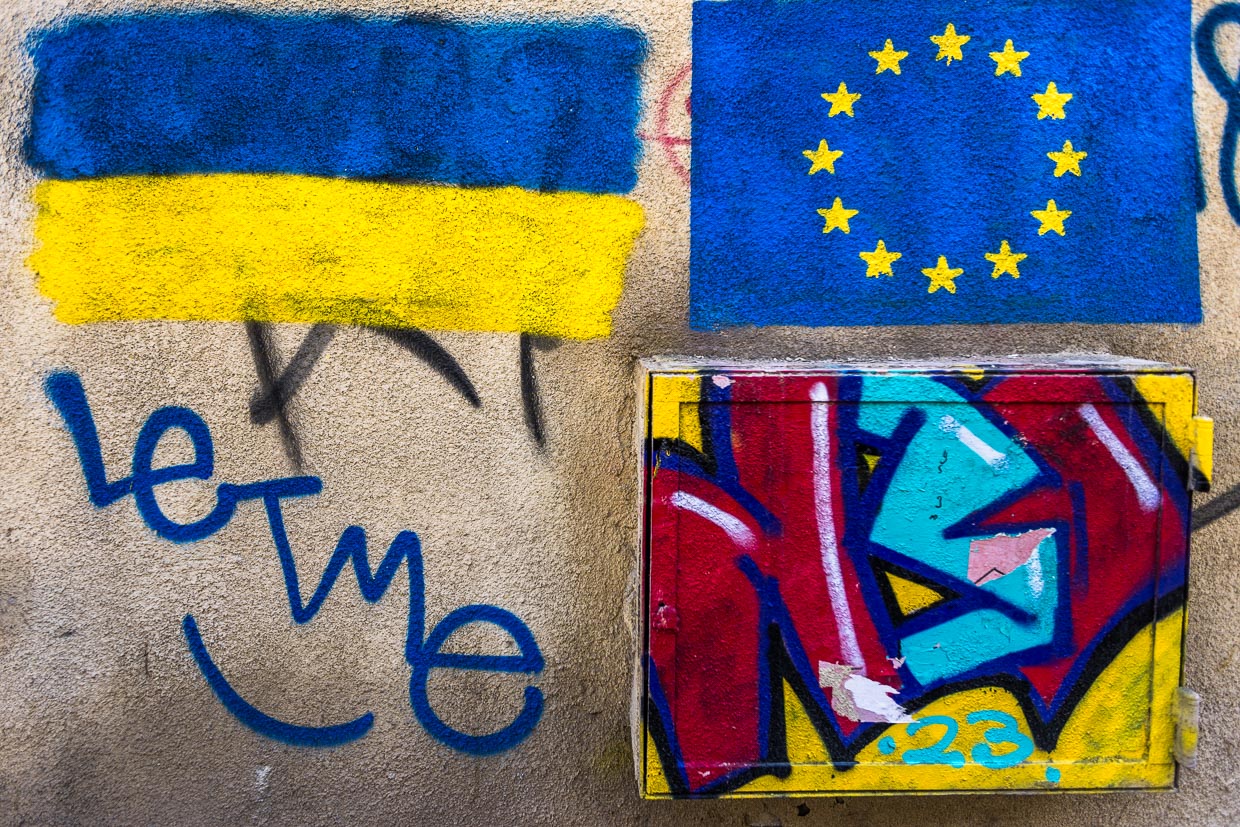
Many refugees from Russia, who make the scarce housing in Tbilisi even more expensive, can well understand this. But the messages don’t miss their mark on Russian tourists either, for whom good food and a relaxed lifestyle are traditionally associated with Georgia. Even exchange offices show “Glory to Ukraine” on their display instead of the ruble rate.
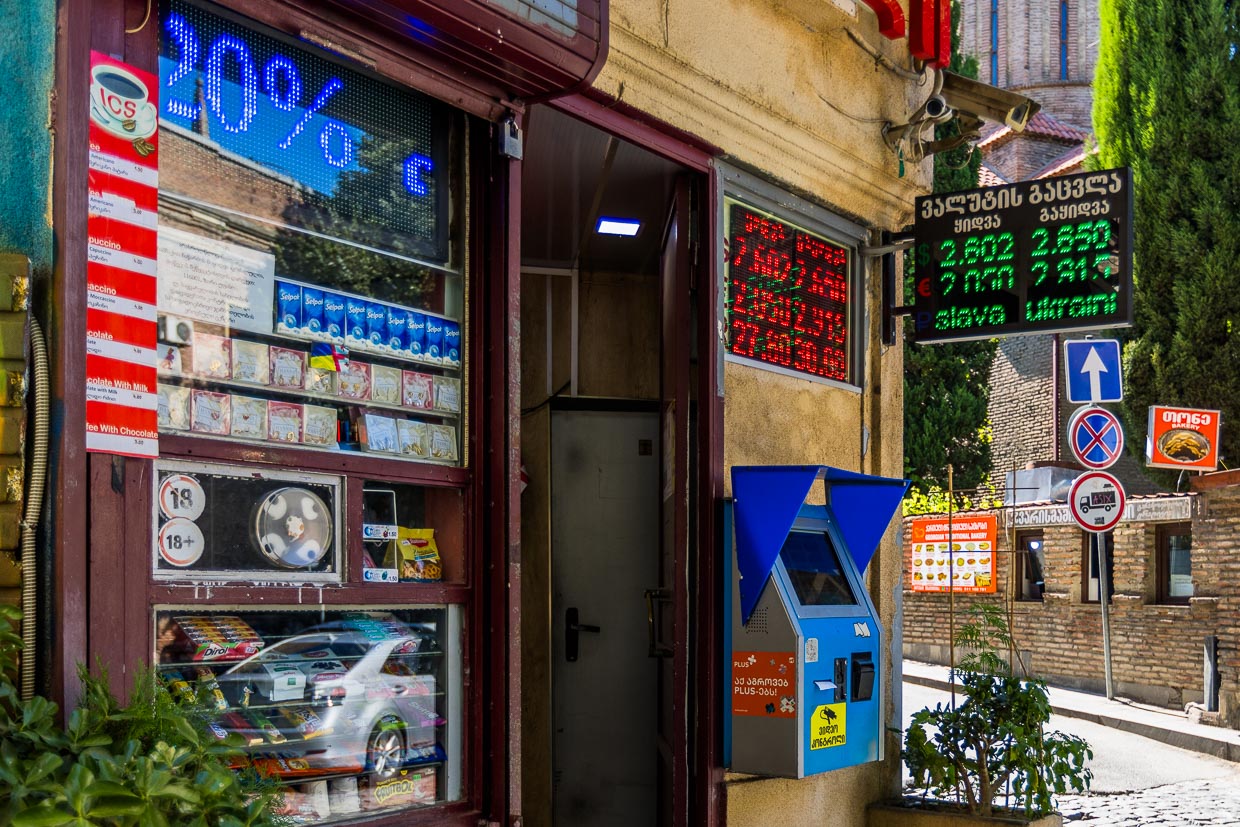
Political statements on house walls are striking. Simple statements have the greatest persuasive power. In their entirety, however, they convey an unfiltered mood. Monuments from the Soviet era, whose massive authoritarianism no longer meets with approval in a post-heroic society, are quite different. One example is the brutally monumental Chronicle of Georgia, for which one has to drive to the outskirts of the city.
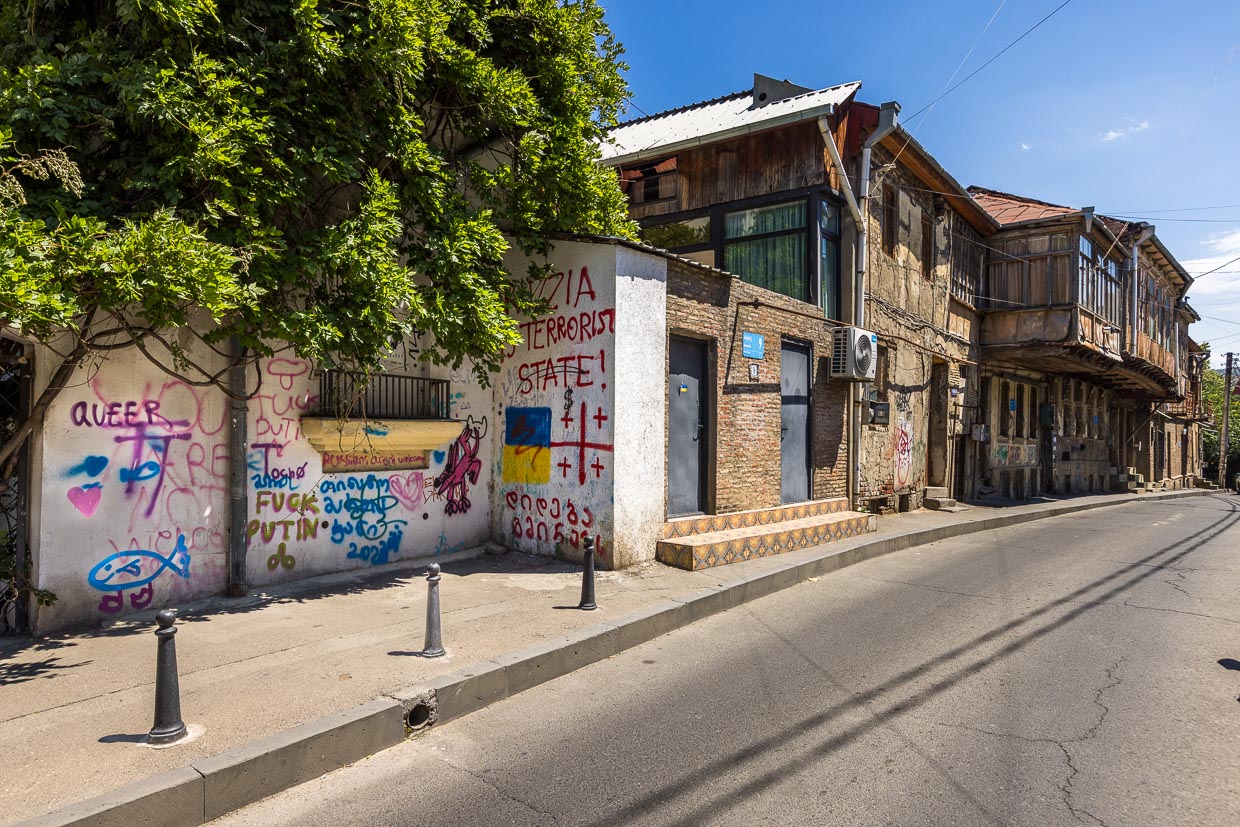
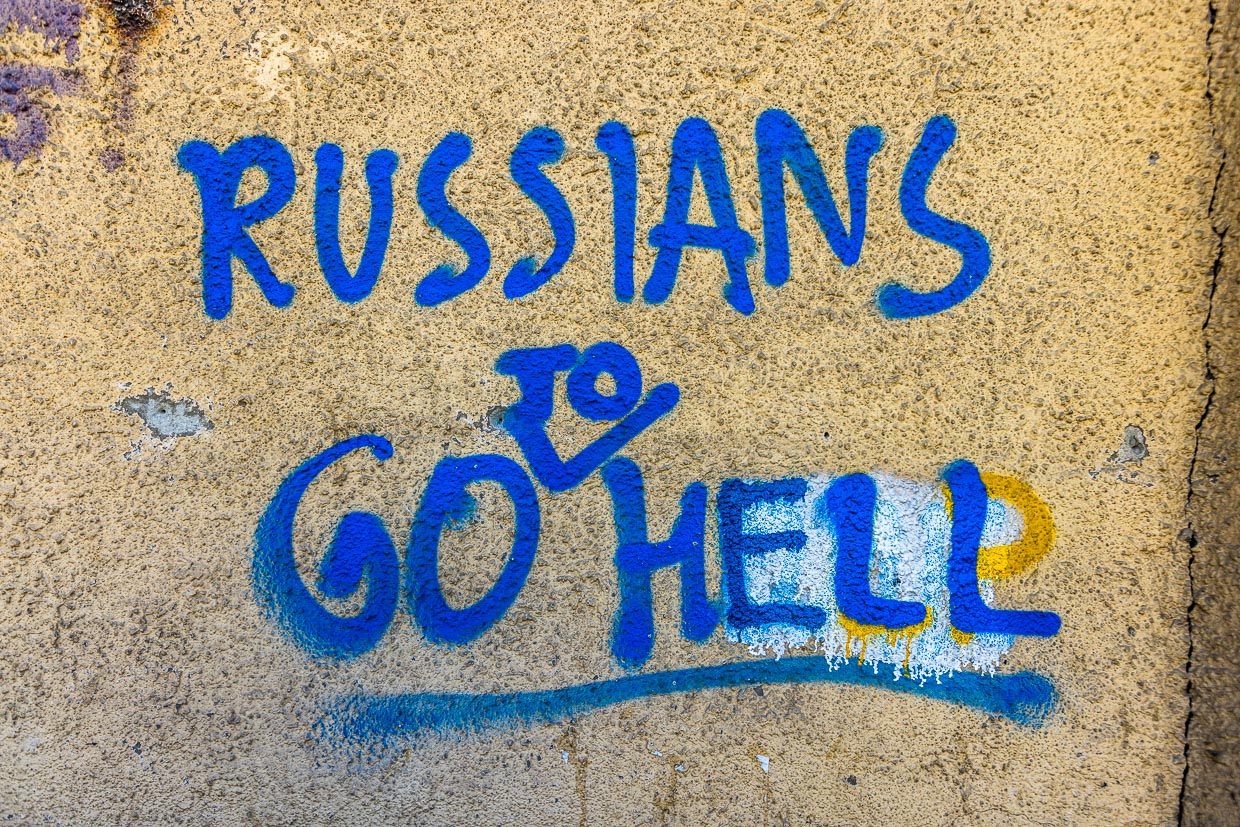
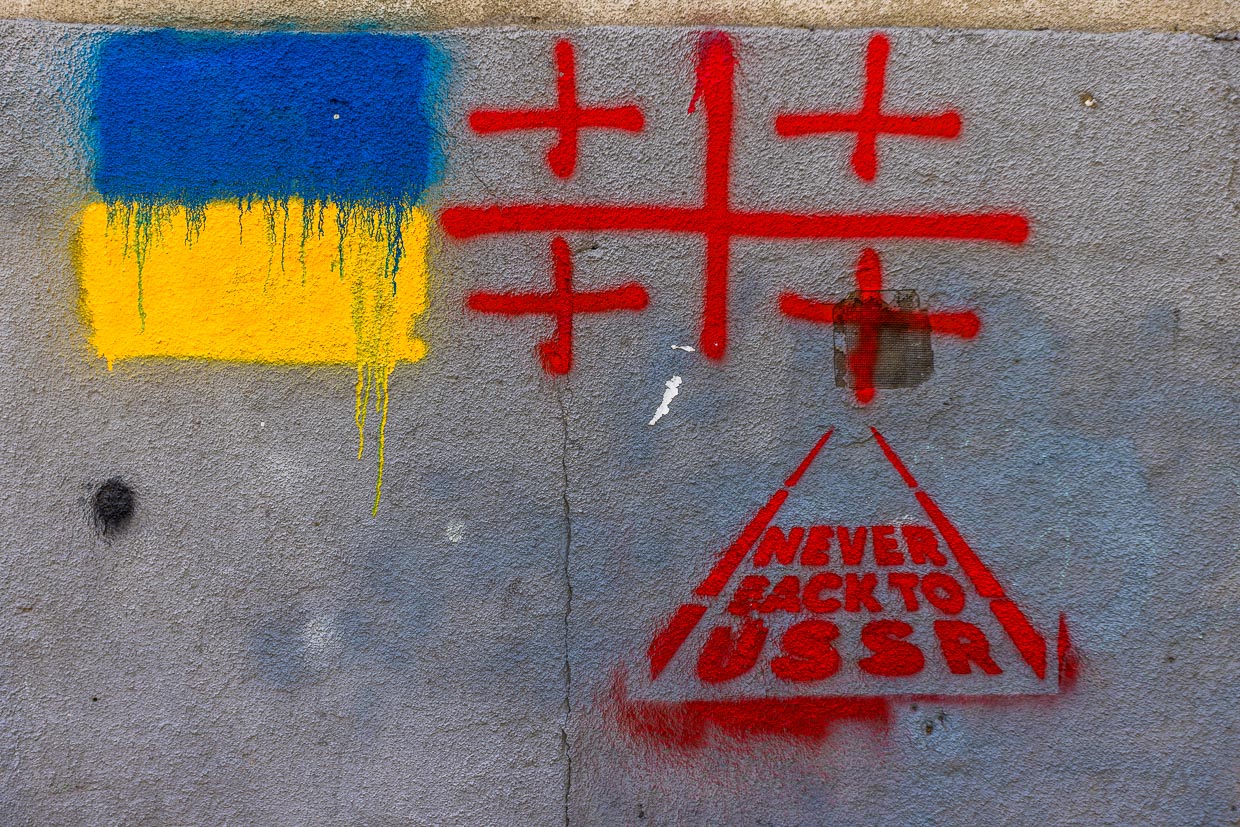
Wall up the despots
A subtle interpretation of the Georgian DreamThe
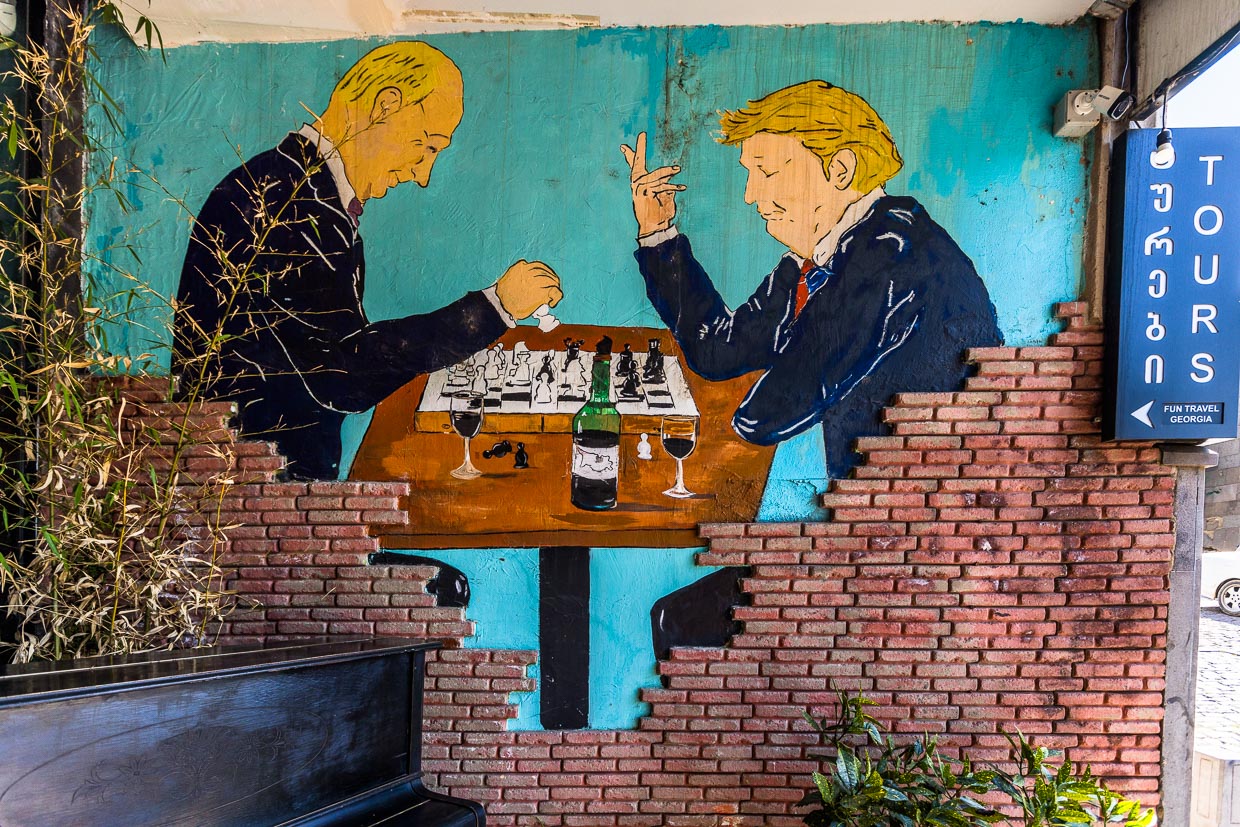
In Georgia, people feel at the mercy of the march of time and the whims of politicians. While the parliamentary majority and the government of Georgia do not want to mess with the neighboring Russian Federation for pragmatic reasons, the population today supports its president, who sees Georgia better off in the Western alliance.
The report on a hike through Tusheti and Khevsuretia offers a lot of nature and insights into the hard life in the High Caucasus.

